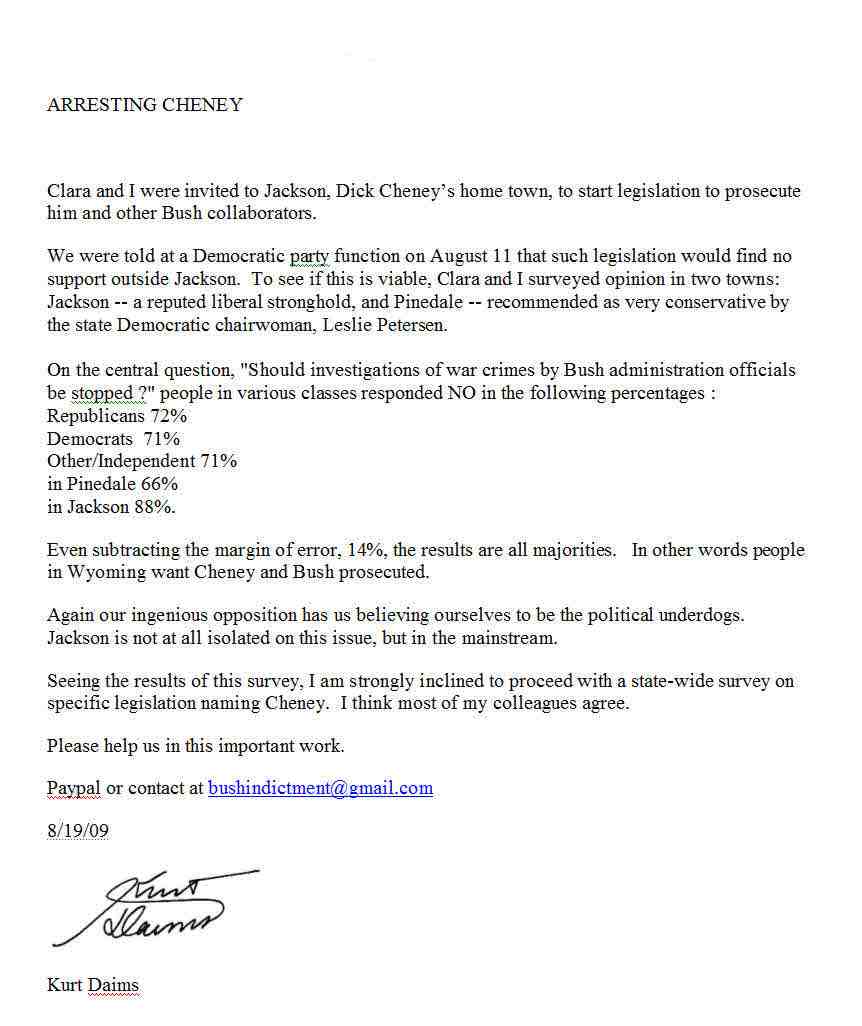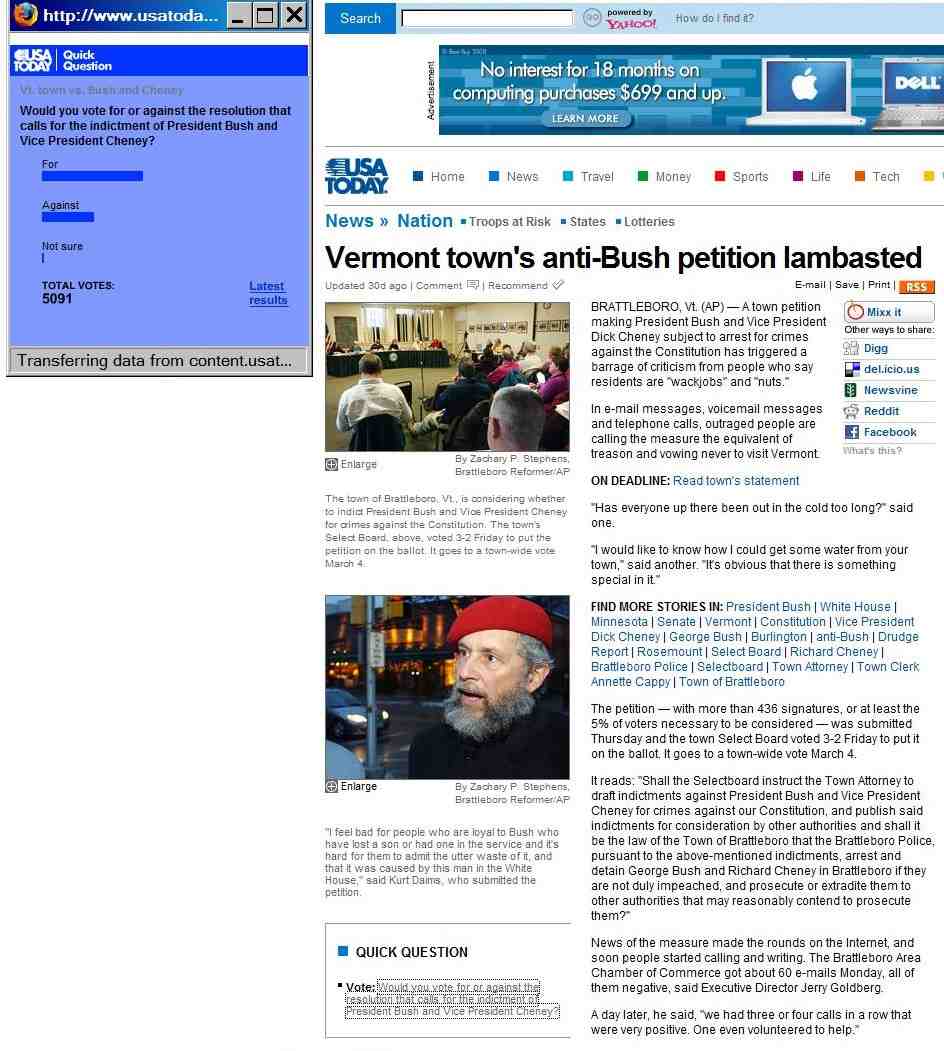Indictment Article Jeffersonian
A pardon is defined in criminal law as an official act of forgiving a crime. A pardon may be granted under the executive powers of a governor or the President. By granting a convicted person a pardon, the conviction is eradicated from the records, the person is freed from further punishments and penalties, and may not be retried for the same offense.
A pardon may be granted to persons for such reasons as advanced age, acts proving rehabilitation, unfairness of trial proceedings, doubts about guilt of the convicted person, or terminal illness. It is usually based upon a notion of undeserved punishment. A pardon does not indicate that the person pardoned is not guilty, but that they are forgiven and no longer deserving of punishment. While laws vary by state, a pardon request usually needs to be accompanied by a lengthy period of exemplary behavior and a reference check. Generally, the more serious the crime, the longer the time requirement for excellent behavior. There are few standards or checks on the exercise of the power to pardon.
USLegal on-line dictionary – https://definitions.uslegal.com/p/pardon/
Mainstream media repeated that opposition to Bush was insignificant, BUT…

Indictment Survey
A semi-formal survey was taken around Elliott and Main Streets Brattleboro, politically neutral territory January 10 – 17 2008.
The survey taker had a sign that advocated indictment. This certainly skews the results in favor of the petition, as only opponents will try to avoid the survey. But it will be valuable to compare to another survey taken in a similar manner.
The main result: 230 to 64
The surveyor asked:
1) Are you a Brattleboro voter?
294 yes apx 2500 no
(Many shoppers come from out of town.)
(if yes)
(2) Would you support a ballot initiative to indict Bush and Cheney in Brattleboro?
230 yes 64 no
(if no)
3) “Can you say briefly why ?”
52 declined to state (I assume these were Bush loyalists.)
2 no prayer was included
6 wrong focus
2 indictment was not serious
2 opposed to petitions. One lady said, there are so many, what’s left of Democracy?
Indictment Survey 1-2008

Indictment Press…
The legal basis is as strong as the Nuremberg Principles, which enforced the laws of prosecuting countries in the defendant country. This implied a jurisdiction not limited by physical territory.
Indictment Legal Memo
Indictment Legality (Short)…
The legal basis of the Indictment is difficult for people to grasp because it is contrary to the common idea of levels of jurisdiction People understand that higher crimes are prosecuted in higher courts and less serious crimes are prosecuted in lower courts. A brief historical note makes it understandable how the Indictment makes use of an exception to this principle.
After World War 2, when many Nazi war criminals escaped to the remote corners of the world, the U.S. and its allies drafted treaties with the purpose of ensuring that the prosecution of such criminals should not be hindered by limits of jurisdiction. With the Universal Jurisdiction substantiated in these treaties a constable in a rural village could arrest an international fugitive suspected of war crimes if the country were signatory to such a treaty. In the case of the Indictment, a citizen of the United States can demand that local authorities in any jurisdiction take cognizance of the treaty to prosecute Mr. Bush as a war crimes suspect. This is because international treaties approved by Congress become domestic law as part of our Constitution.
After World War 2 the Allies wanted to prosecute crimes against humanity which had been committed by the Nazis. Two barriers existed. First, many of these crimes involved only Germans in Germany; and so the allies had no jurisdiction. Second, many Nazi war criminals were escaping to South America and other remote areas. The Allies wrote the Nuremberg Charter, the Geneva Conventions and other treaties because they wanted no technicalities to interfere with the prosecution of crimes against humanity. Police everywhere — in a small Brazilian village for example — should be able to arrest a Nazi war crimes fugitive. Universal Jurisdiction applies because such crimes are too serious to be limited by territorial jurisdiction.
Under a legal provision known as “Common Law Application,” municipalities have indisputable legal standing to apply laws against any alleged criminal who violates Federal law – which encompasses violating treaties, being party to war crimes, or engaging in any other criminal activities. We have also been assured that the language in the resolution is well suited for implementing this provision.In short, we have the legal justification to call for a legal remedy, because the government cannot nullify the rights invested in its citizens to invoke Federal or international criminal law. Put another way, any town has the right to pass laws to address war crimes, or any other Federal crimes, and to indict the people alleged to have committed them.
— Kurt doesn’t know who said this.
Pepper Spanish UJ Opinion. . .

This Post Has 0 Comments